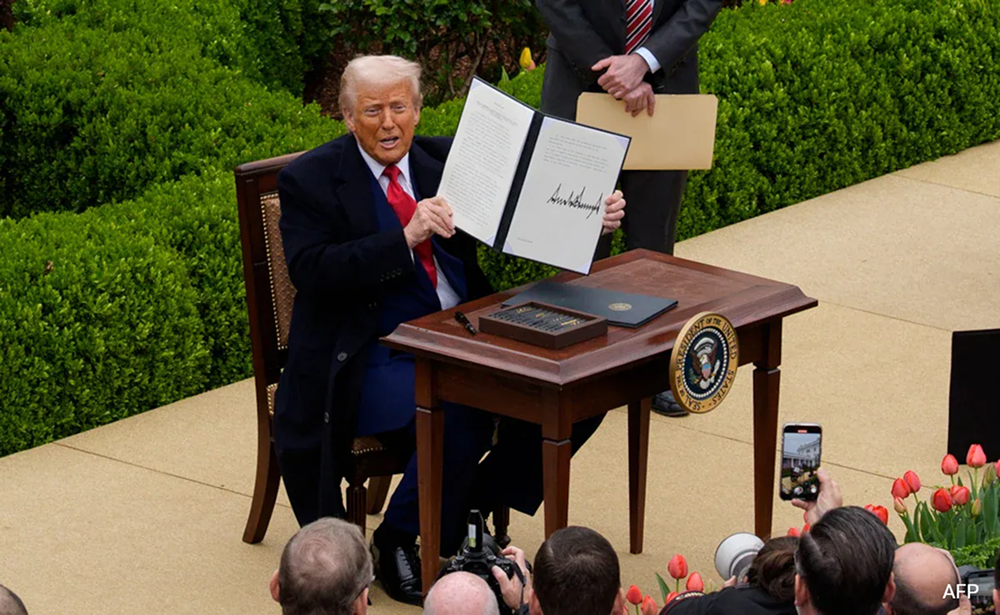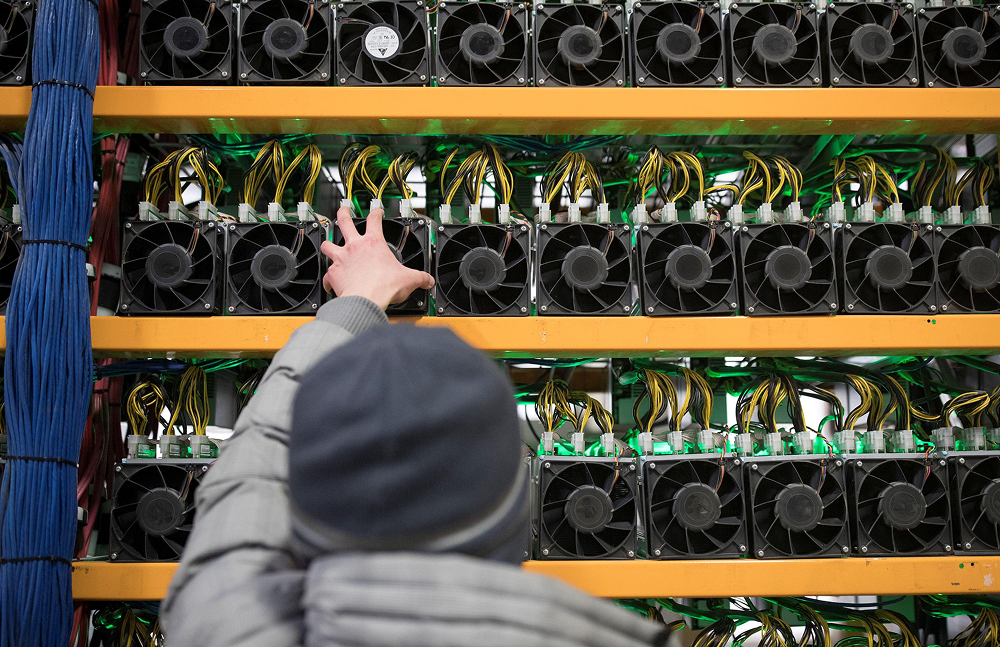According to the latest report from Bloomberg, the Trump administration in the United States has announced an update to its tariff policy, exempting import tariffs on smartphones, laptops, hard drives, processors, memory chips, and production equipment related to Taiwan Semiconductor Manufacturing Company (TSMC). This decision was made after Trump announced a 90-day suspension of tariffs on most countries, but the tariff rates on imported goods from China were further increased. This move has triggered a chain reaction in the global technology supply chain and has far-reaching implications for the cryptocurrency market.

Policy Background and Details
The adjustment of the Trump administration's tariff policy stems from its "America First" economic strategy, aimed at revitalizing domestic manufacturing while addressing global trade imbalances. Since early 2025, Trump has repeatedly stated that he would impose high tariffs on imported goods, especially those from China, with rates once proposed as high as 125%. However, considering the technology industry's deep reliance on the global supply chain, the White House ultimately chose to exempt key consumer electronics and semiconductor equipment to avoid a direct impact on American consumers and businesses.
According to an announcement from U.S. Customs and Border Protection on April 11, the exemption covers communication equipment (smartphones), computers, integrated circuit devices, and semiconductor manufacturing equipment. This move is seen as a significant boon for tech giants, particularly companies like Apple, Nvidia, and Samsung, which heavily rely on Asian supply chains. White House Press Secretary Caroline Levitt stated, "President Trump has made it clear that the U.S. cannot continue to rely on China for critical technology products. These exemptions are intended to provide a buffer for businesses and accelerate the return of manufacturing to the U.S." Meanwhile, Trump emphasized in public that he is willing to reach an agreement with China and expects "positive progress" in the future.

Immediate Reactions from the Technology Industry
The Trump administration's tariff exemption policy has prompted different response strategies from the technology industry. Apple quickly adjusted its supply chain, with Bloomberg reporting that it urgently imported 600 tons of iPhone components from India before the tariffs took effect to avoid potential cost increases. Nintendo announced a pause on pre-orders for the Switch 2 due to the uncertainty of the tariff policy, stating it would further assess the market environment. OnePlus did not specify the reason but has raised the price of its smartwatches, with analysts speculating that this may be related to fluctuations in supply chain costs.
As a global leader in chip foundry, Taiwan Semiconductor Manufacturing Company (TSMC) directly benefits from the exemption on semiconductor equipment tariffs. TSMC's factory in Arizona, USA, began mass production in January 2025, but its capacity can only meet 5%-7% of the U.S. market demand. The tariff exemption provides TSMC with breathing room, allowing it to plan its global production layout more flexibly without immediately bearing high tax costs.
Impact on the Cryptocurrency Industry
The Trump administration's tariff exemption policy not only affects the traditional technology industry but also has multiple indirect effects on the cryptocurrency market. The potential impacts are analyzed from several key dimensions:
- Stabilization of Mining Equipment Costs
Cryptocurrency mining relies on high-performance chips and processors, especially ASIC (Application-Specific Integrated Circuit) chips, most of which are produced by Asian manufacturers like TSMC. The tariff exemption directly lowers the import costs of mining equipment, avoiding price surges in mining machines due to rising tariffs. This is beneficial for the cryptocurrency mining ecosystem represented by Bitcoin (BTC) and Ethereum (ETH). A user on platform X commented, "The chip tariff exemption is a boon for Bitcoin miners; the costs of expanding computing power will be controlled."

- Opportunities for Blockchain Infrastructure Companies
Blockchain technology heavily relies on servers and data centers, and the core components of these facilities (such as processors and memory chips) benefit from the tariff exemption. Companies like Nvidia, whose GPUs are widely used in blockchain nodes and AI-driven decentralized applications (DeFi), will gain greater market competitiveness due to stable supply chain costs. This may drive further expansion of blockchain infrastructure, attracting more institutional investors into the cryptocurrency market.
- Market Sentiment and Investment Confidence
The tariff exemption alleviates systemic risks in the technology industry, indirectly boosting investor confidence in the cryptocurrency market. Since early 2025, Bitcoin prices have fluctuated significantly due to uncertainties surrounding geopolitical issues and trade frictions. The tariff exemption policy is interpreted by the market as a "support" signal, with some analysts predicting that cryptocurrencies may experience a surge in the short term. However, if U.S.-China trade negotiations do not meet expectations, long-term uncertainties may still suppress market sentiment.
Challenges and Outlook
Although the tariff exemption brings short-term benefits to the technology and cryptocurrency markets, long-term impacts remain uncertain. Moreover, the return of manufacturing to the U.S. will take years, and in the short term, the technology industry will still rely on Asian supply chains. Wedbush Securities analyst Dan Ives pointed out, "Moving 10% of the supply chain back to the U.S. will take three years and cost $30 billion, and the process will be full of challenges."
Conclusion
The Trump administration's exemption of tariffs on key technology products such as smartphones and chips marks a subtle balance between hardline and pragmatic trade policies. This decision provides a respite for tech giants and the cryptocurrency market but also comes with complex challenges related to geopolitical issues and supply chain restructuring. In the short term, cryptocurrency mining and blockchain infrastructure are expected to benefit from cost stabilization and a rebound in market confidence; in the long term, the industry must remain vigilant against the potential risks of escalating trade frictions. Against the backdrop of globalization and localization struggles, the future trajectory of the technology and cryptocurrency markets will become increasingly uncertain.
This article represents the author's personal views and does not reflect the position or views of this platform. This article is for informational sharing only and does not constitute any investment advice to anyone.
AiCoin Official Website: aicoin.com
Telegram: t.me/aicoincn
Twitter: x.com/AiCoinzh
Email: support@aicoin.com
Group Chat: Customer Service Yingying, Customer Service KK
免责声明:本文章仅代表作者个人观点,不代表本平台的立场和观点。本文章仅供信息分享,不构成对任何人的任何投资建议。用户与作者之间的任何争议,与本平台无关。如网页中刊载的文章或图片涉及侵权,请提供相关的权利证明和身份证明发送邮件到support@aicoin.com,本平台相关工作人员将会进行核查。




